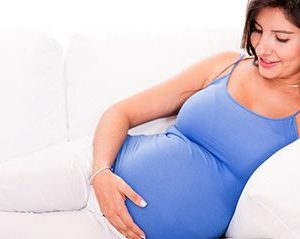- Could Your Grocery Store Meat Be Causing Recurring UTIs?
- Are You Making This Expensive Thermostat Error This Winter?
- Recognizing the Signs of Hypothyroidism
- 10 Strategies to Overcome Insomnia
- Could Artificial Sweeteners Be Aging the Brain Faster?
- Techniques for Soothing Your Nervous System
- Does the Water in Your House Smell Funny? Here’s Why
- Can a Daily Dose of Apple Cider Vinegar Actually Aid Weight Loss?
- 6 Health Beverages That Can Actually Spike Your Blood Sugar
- Treatment Options for Social Anxiety Disorder
Infections During Pregnancy Show No Causal Link to Autism

Research has suggested that kids born to moms who had the flu or another infection during pregnancy may be more likely to have autism, but a new study implies infection may not be the cause after all.
“We found no evidence to suggest that infections contracted by mothers during pregnancy would cause autism in the child,” said study author Martin Brynge. He’s a doctoral student in the global public health department at Karolinska Institute in Solna, Sweden.
“Our findings can reassure expectant parents that common infections, such as the flu, during pregnancy do not seem to increase the children’s risk of autism or learning disabilities,” Brynge added.
Affecting about 1 in every 54 children in the United States, autism spectrum disorder is an umbrella term for a range of developmental disorders that affect the ability to communicate and relate to others, according to the U.S. Centers for Disease Control and Prevention.
For the study, the researchers looked at autism risk in siblings when mom had an infection during one pregnancy but not the other in more than 500,000 children born between 1987 and 2010. They also examined autism risk in kids born to moms who had been diagnosed with an infection during the year before their pregnancy.
When researchers compared siblings, those exposed to an infection during pregnancy were no more likely to develop autism than their brothers or sisters who weren’t exposed. In addition, women who had an infection a year before they became pregnant were linked to a similar autism risk as infections during pregnancy, but not linked to risk of intellectual disability.
Taken together, these findings suggest that it’s likely not the infections during pregnancy that increase the risk for autism in kids. Instead, moms of children with autism appear to be more susceptible to infections in general, not just during pregnancy, the researchers said. (For tips on preventing infections, click here.)
“The increased propensity for infections in these mothers might be caused by unknown genetic factors affecting both the children’s risk for autism, as well as their mothers’ propensity for infections,” Brynge said.
The study comprised a broad range of infections, and the results were similar across infection types and trimesters of pregnancy.
The research was conducted before the global COVID-19 pandemic. “Future studies ought to investigate the potential effects of COVID-19 specifically, identify any potential causal and modifiable environmental factors acting during pregnancy, and also examine the causes of the increased incidence of infections among mothers to children with autism,” Brynge said.
The study does not contradict well-established links between some specific viral infections during pregnancy, such as cytomegalovirus infection (CMV) and rubella (German measles), and the risk of serious developmental conditions in children, Brynge noted.
Researchers also looked at whether moms who had an infection during pregnancy were more likely to have kids with an intellectual disability as measured via IQ testing, and there may be a small increased risk for intellectual disability in these kids, the study found.
The findings were published Sept. 7 in The Lancet Psychiatry.
Melody Zeng is an assistant professor of immunology at the Institute for Children’s Research at Weill Cornell Medicine in New York City.
“This study argues against a direct causal relationship between maternal infection during pregnancy and defective neurodevelopment in children,” said Zeng, who was not involved in the research.
“General health of the mothers due to genetic factors or environmental/dietary factors might be a more important determinant of the risk of autism in the offspring [than infections during pregnancy],” she said.
It’s possible that women who are more susceptible to infections in the first place might be more likely to have kids with autism, Zeng said.
But the jury is still out. “These are implications, not definitive evidence,” she said.
More information
Autism Speaks has more on what might cause autism.
SOURCES: Martin Brynge, PhD, doctoral student, department, global public health, Karolinska Institute, Solna, Sweden; Melody Zeng, PhD, assistant professor of immunology, Institute for Children’s Research, Weill Cornell Medicine, New York City; The Lancet Psychiatry, Sept. 7, 2022
Source: HealthDay
Copyright © 2026 HealthDay. All rights reserved.










